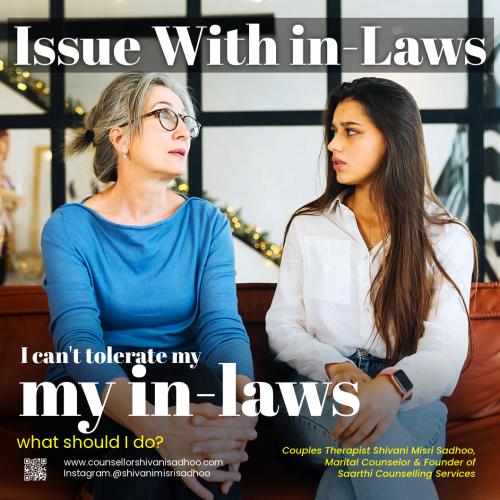Relationships today face new challenges, especially in the digital world where social media, messaging apps, and constant online connections blur the boundaries of loyalty. While traditional cheating has always been seen as betrayal, the idea of micro-cheating has entered the conversation.
The difference may seem small, but both can have serious consequences for trust and emotional security. Understanding where one ends and the other begins can help you protect your relationship before it’s too late, says Shivani Misri Sadhoo, eminent marriage counsellor and infidelity therapist in India.

What is Micro-Cheating?
Micro-cheating refers to small, seemingly harmless actions that show an emotional or romantic interest in someone outside your committed relationship. These behaviours are often kept secret and may include things like regularly texting someone you’re attracted to, engaging in flirty conversations online, or hiding certain interactions from your partner. While it may not involve physical intimacy, micro-cheating undermines emotional trust and creates cracks in the bond between partners.
What is Cheating?
Cheating is a more direct and universally recognised betrayal. It involves crossing clear relationship boundaries through physical intimacy with someone else, lying to hide an affair, or building a secret romantic connection. Cheating can be both physical and emotional, but in either case, it violates trust in a way that’s far harder to repair. Unlike micro-cheating, which creeps in quietly, cheating is a deliberate decision that openly breaks commitment.
Micro-Cheating Vs Cheating: The Key Differences
1. Scale of Behaviour
Micro-cheating begins with subtle actions—like flirtatious messages or secret online interactions—whereas cheating involves more explicit acts, such as physical intimacy or secret relationships.
2. Intent and Secrecy
Micro-cheating may stem from curiosity or emotional attraction, while cheating is a clear choice to cross the line. Both are hidden from a partner, but cheating carries a heavier intent.
3. Impact on Trust
Micro-cheating gradually erodes trust and emotional safety. Cheating, however, can shatter trust instantly, often leading to irreparable damage.
4. Perception in Relationships
Micro-cheating is often dismissed as “harmless fun,” yet it still feels like betrayal to many. Cheating, on the other hand, is universally accepted as a violation of loyalty.

Recognising the Signs of Micro-Cheating
Secretive Digital Habits
When your partner becomes overly protective of their phone, hides messages, or deletes chat histories, it may be a warning sign.
Excessive Attention to Someone Else
Spending unusual amounts of time with or talking to a specific person, especially with an emotional or flirty tone, can indicate micro-cheating.
Defensiveness About Friendships
If questions about certain “friends” trigger defensiveness or irritation, it often signals that boundaries are being crossed.
Emotional Withdrawal
A noticeable decline in intimacy, affection, or quality time together may point to emotional energy being directed elsewhere.
Avoiding Boundary Discussions
Partners who dodge conversations about loyalty and trust may be keeping questionable behaviours under wraps.
Taking Action
If you notice these signs, the first step is honest communication. Every couple has unique boundaries, so it’s important to discuss what each of you defines as loyalty, flirting, or betrayal. By clarifying expectations, you can avoid misunderstandings before they grow. If trust has already been broken, addressing it quickly prevents resentment from deepening. For couples struggling to rebuild trust, professional counselling can provide support and guidance.
Micro-cheating and cheating may differ in scale, but both can weaken or destroy a relationship if ignored. Micro-cheating works in subtle ways, slowly corroding trust, while cheating causes immediate and often devastating harm. The solution lies in open communication, setting clear boundaries, and respecting each other’s emotional needs. By recognising the warning signs early and taking timely action, couples can strengthen their relationship and prevent small betrayals from turning into bigger heartbreaks.

Shivani Misri Sadhoo is an internationally recommended relationship counsellor by the world’s biggest and most trusted study and research-based foundation for couples therapy – Gottman Institute. She is trained in specialised key relationship counselling Skills from AIIMS, VIMHANS and various other reputed institutions. Counsellor Shivani Misri Sadhoo is also certified in emotionally focused therapy, cognitive behavioural therapy, and dialectical behaviour therapy.
Counselor Shivani Misri Sadhoo is also a Certified Neuro Linguistic Practitioner with specialized training and experience in the field of affairs/betrayals, trust issues, difficulty communicating, conflicting values, bereavement, grief and loss (affairs, separation, divorce, childhood) and emotional health issue (anxiety, social anxiety, fear, depression, low mood).
Currently, Shivani Misri Sadhoo is one of the top counselors with the HIGHEST Success Rate with over 17,000 happy couples and individuals (based in India and abroad), who has benefited from her therapy. Psychologist and Counselor Shivani Misri Sadhoo not only practices independently from her clinic in Greater Kailash, Delhi, India, but also is listed on the panel of eminent hospitals like IBS Hospital Panel – Institute of Brain and Spine, Express Clinic, Fortis (formerly) based in Delhi.
Call Counselor: +91-8860875040
Email: saarthiforlife@gmail.com



